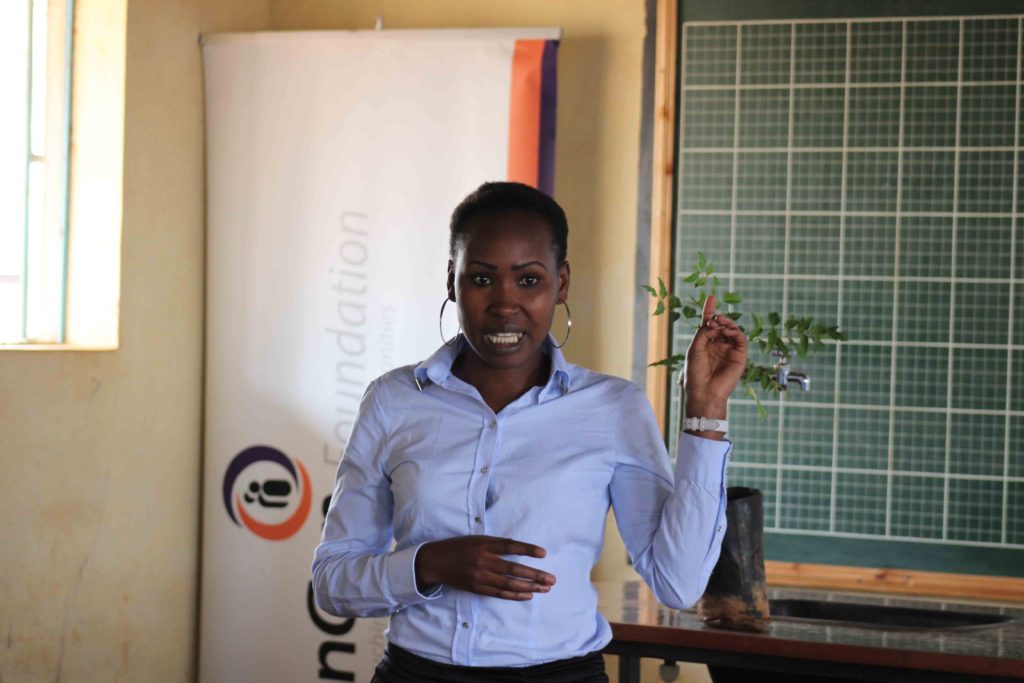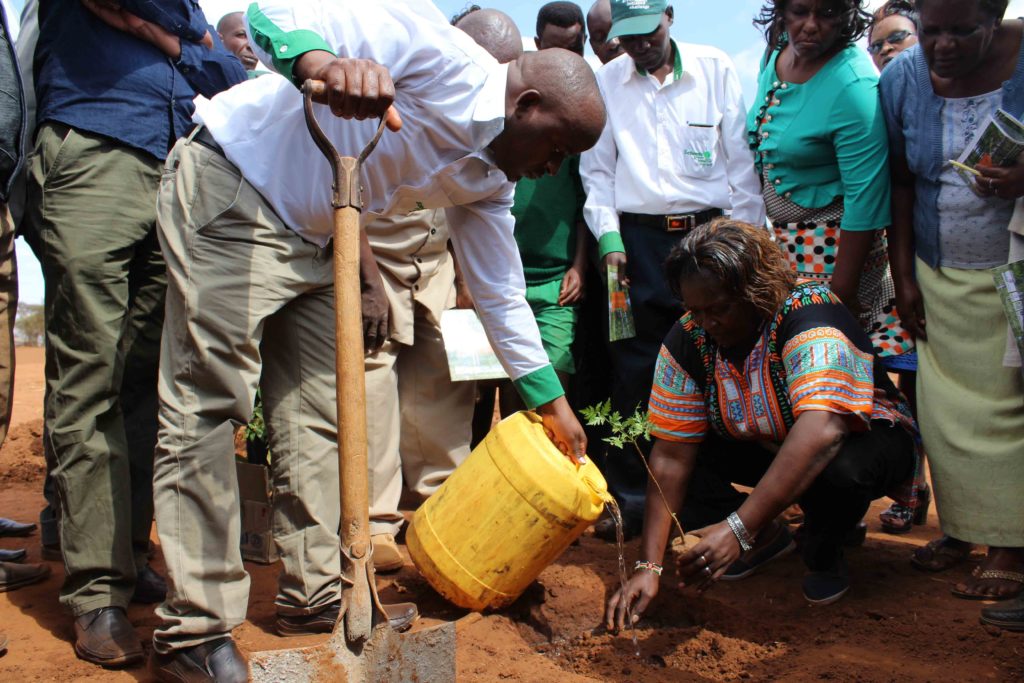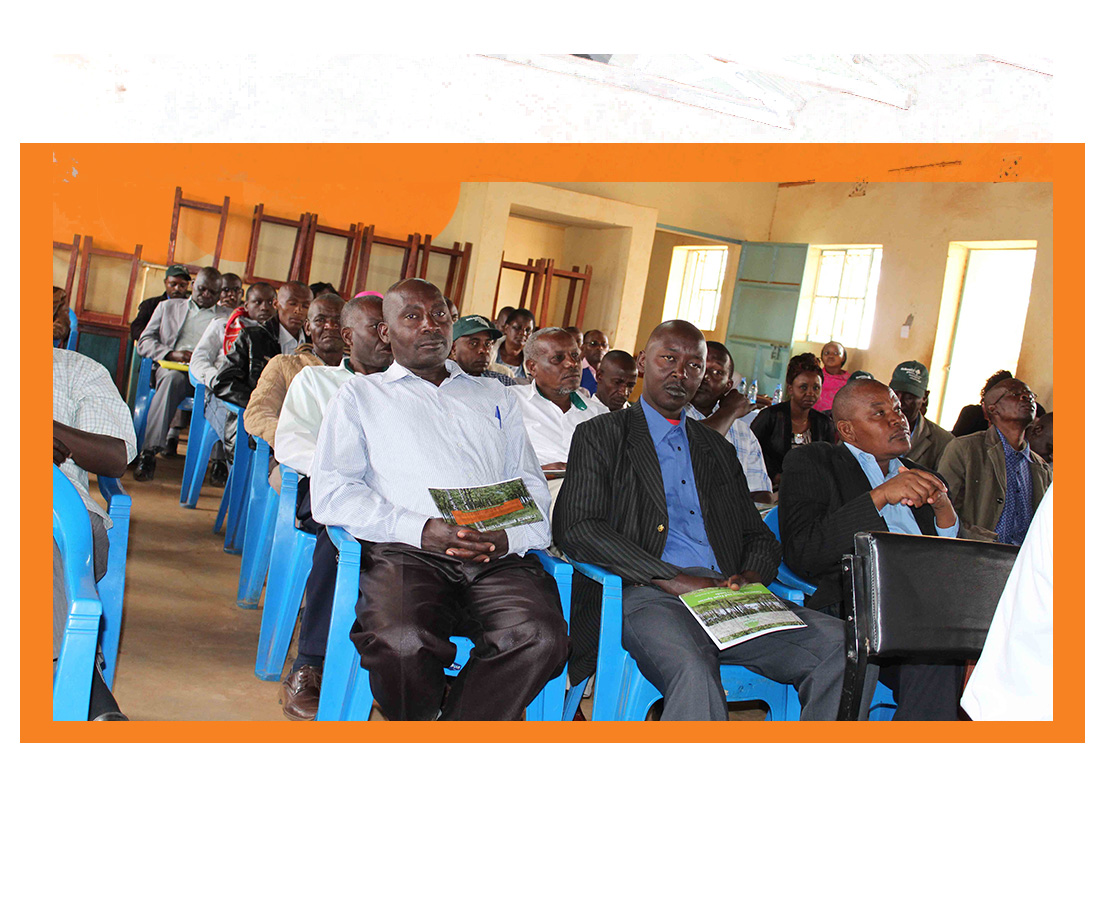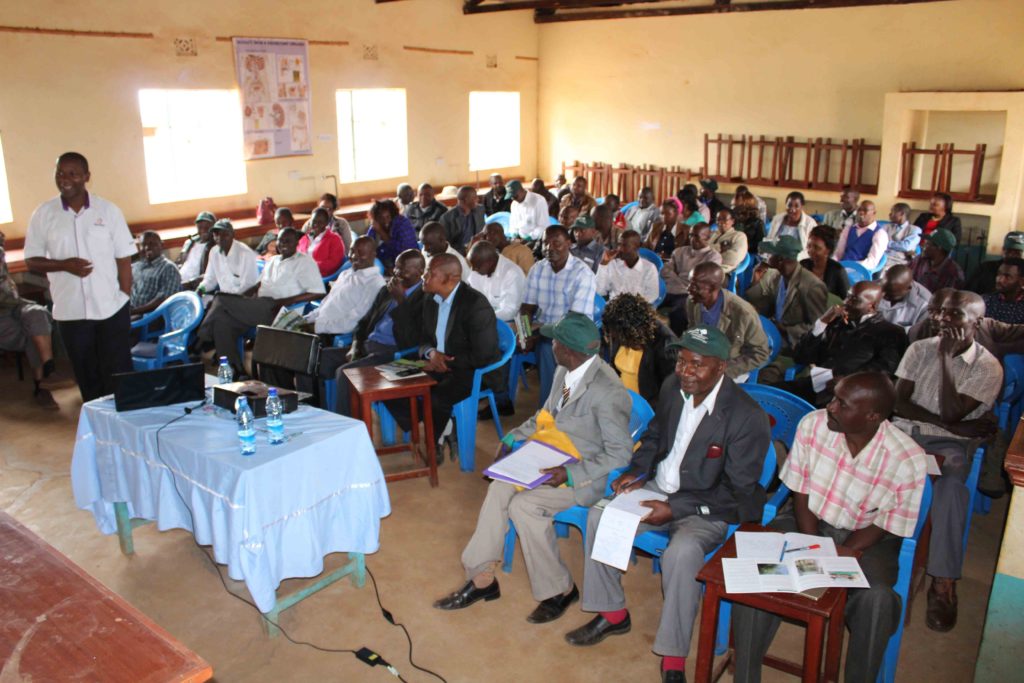The prevailing drought, coupled with poor seedlings management and destruction by livestock, is a major obstacle facing participating schools in phase III of the Schools Green Initiative Challenge (GIC), the KenGen Foundation found out during a 3-day capacity building workshop held at the semi-arid counties of Kitui, Machakos, and Embu from 11 – 13 September.
The schools’ ‘Green’ teachers and head teachers from 99 schools also had a chance to compare notes, and share experiences, 6 months after Mukau, Muveshi and Terminalia brownii seedlings were distributed to their schools at the beginning of the tree planting competition.
READ MORE: Schools’ Greening Project Lauded During Melia Workshop
The workshop, facilitated by the KenGen Foundation, KenGen, Better Globe Forestry, Bamburi Cement, National Environment Management Authority (NEMA) and Kenya Forest Service (KFS) aimed to review the progress and assess the challenges facing the participating schools while also looking for simple innovative solution to tackle the challenges.
Mike Njeru, the Managing Trustee of the KenGen Foundation, was present to welcome the participants to the workshop together with the sub county directors of education from Machakos County Ms. Peninah Mbaluka, her counter part from Embu Ms. Grace Karimi, and Ms. Miriam Kamau from the Kenya Forest Service.
The teachers had a chance to interact with the GIC officials, while learning more about the value of the dry-land tree species; how to better manage their woodlots; and also how to record and communicate the project’s growth within the schools’ woodlots.

Dorcas Arama, the Foundation’s Accounts Officer takes the workshop through the economic value of the Mukau tree in semi-arid areas.
The replacement of seedlings was agreed upon; even as the competition enters the intensive streatch to determine who will be the overall winner based on the seedlings’ survival rates.
READ MORE: KenGen Scoops Best Corporate (State Agency) Tree Growing And Forest Conservation Award
Joseph Loibach, David Egialang and Candy Loyanae from Tullow Oil joined the workshop on the second day to learn more about the GIC capacity building and were impressed at the commitment and zest showed by the teachers.
Currently, 84% of Muveshi and Terminaalia brownii seedlings are faring well overall across the three counties, while Mukau stands at 54%.

Miriam Kamau from Kenya Forest Service and Julius Mwanyalo Better Globe’s M&E Officer demonstrate the proper way of planting the Mukau tree to Machakos Green teachers.
The GIC project is a 10-year project funded by the partners at a cost of Ksh. 120 million and is an upscale of the successful Phase I pilot project that initially involved 81 schools within the counties of Embu and Machakos.
The project is designed as a challenge to participating schools, mainly due to the dry weather conditions in the areas. Prizes are awarded based on the highest survival rate of seedlings and use of innovation in growing the trees.
The GIC targets to reach 140,000 school children by 2018, with the schools being used as channels to reach out to the wider community members and encourage tree planting and nurturing.
So far, more than 90,000 seedlings have been planted in Phase II of the tree-planting competition scheduled to end in 2018.
Follow us on Twitter through @KenGen_Foundatn and like our Facebook page for more updates.
–Ernest Nyamasyo, Communication Officer


